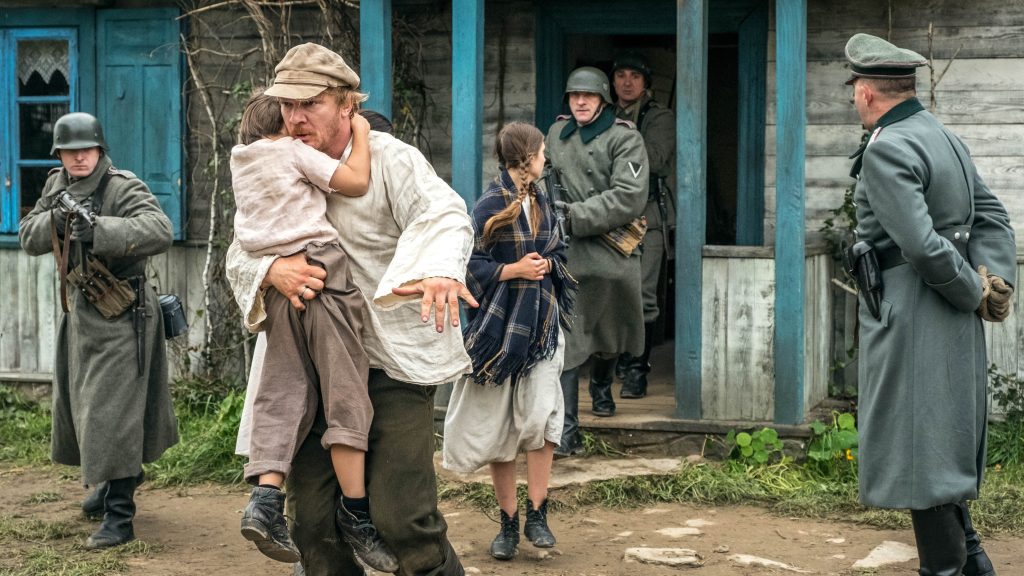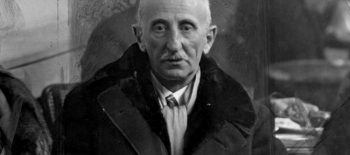In Theaters in New York July 13, 2022
& Nationwide July 22, 2022
Directed by Steven Oritt
Produced by Steven Oritt, Justyna Pawlak
Executive produced by Mickey Shapiro
Written by David Himmelstein
Starring Zuzanna Surowy, Eryk Lubos, and Michalina Olszańska
RT: 111 Minutes
Discount $3 ticket for NYC screenings:
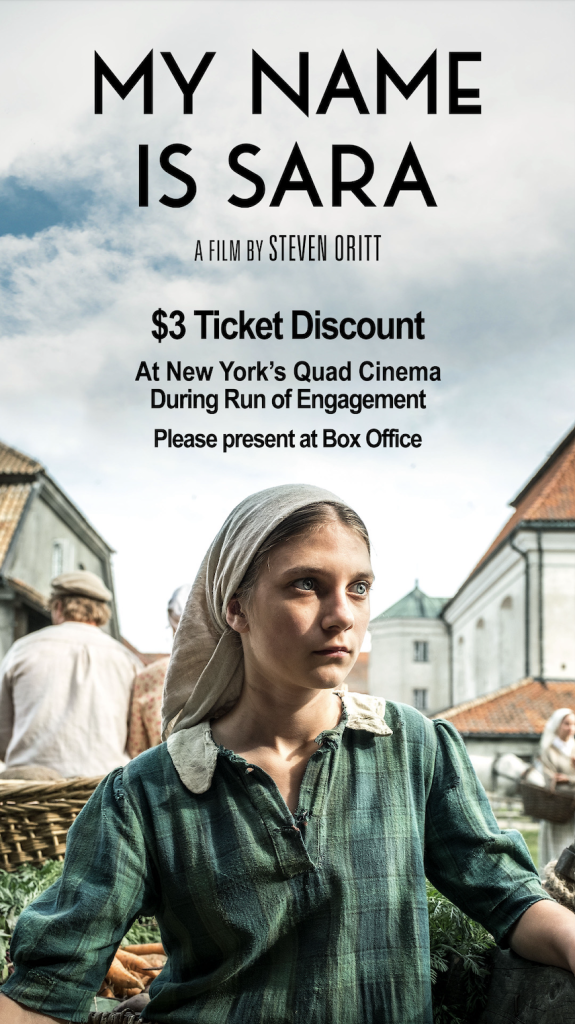
The film begins in September of 1942, as Sara and her older brother Moishe are on the run, desperately escaping the ghetto in Korets. After learning of the Germans’ plan to liquidate the ghetto the following morning, Sara’s parents said goodbye to her and Moishe forever and forced them to leave at once. After fleeing together, Sara then has to make the toughest decision of her young life: stay with her brother and risk being implicated by his obvious Jewish heritage, or leave him and attempt to survive alone, as someone else. She makes the tougher choice, abandoning Moishe while he sleeps and walks into the forest on her own. She survives in the woods for a few days, travelling only at night, until she arrives in a town far enough away from hers, where she can safely assume a new identity. There, she takes the name of one of her friend’s, Manya Romanchuck, a Ukrainian girl she went to school with before the Germans arrived. As Manya, she gets a job as a nanny, raising two little boys on a nearby farm, working for a Ukrainian farmer and his much younger wife. Pavlo and Nadia are immediately suspicious of their new employee’s backstory and put her through repeated trials to test her identity. Despite their continual, heavy scrutiny, Sara is able to pass off as Manya and quickly develops a relationship with the boys in her care. The parents on the other hand, are a different story.
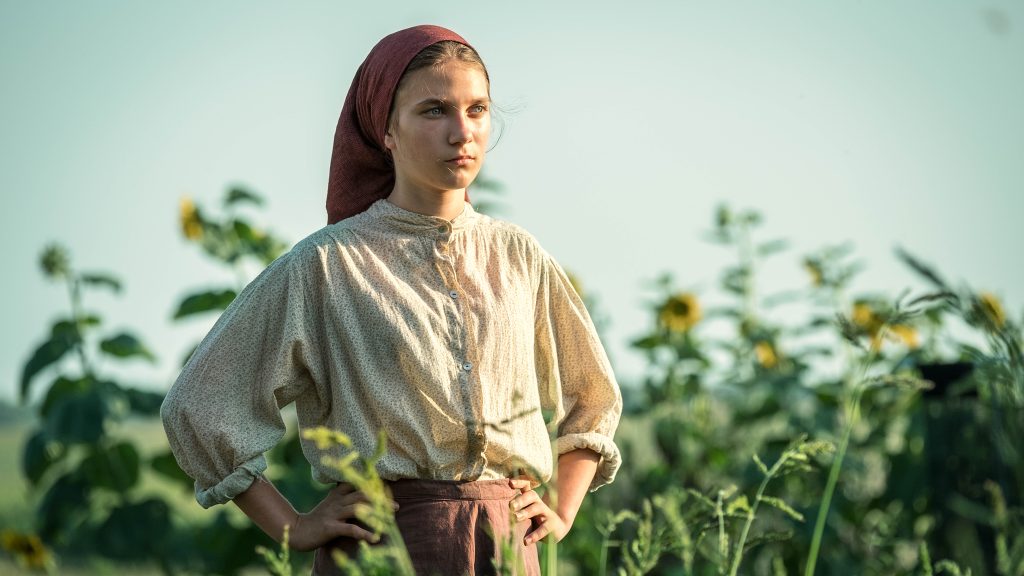
Shortly after arriving at the farm, Sara is encumbered with more things to hide other than her own identity. She mistakenly discovers that Nadia is having an affair with Pavlo’s nephew and reluctantly becomes drawn into the web of her employers’ complicated marriage.
A few months pass and well into winter, the war visits the farm for the first time. A group of Russian partisans arrives in the middle of the night, demanding meat and provisions and stealing some of the family’s livestock. In the exchange, Sara learns that one of the partisans is a Jew and right before he is about to kill Pavlo, Sara saves her boss by speaking up and showing the partisans where the meat is hidden. This enrages Nadia who SLAPS Sara across face, yelling at her, “We didn’t take you into our house to think!” While Nadia doesn’t yet trust who her new employee is, she has to trust her with her deepest of secrets. Not even a teenager, Sara is thrust into the complex world of marital infidelity that is playing out in front of her. While the family attends a “Malanka” New Year’s party, Pavlo is upstaged by the man who he’s suspicious is sleeping with his wife, his own nephew. Pavlo drunkenly confronts Sara if she knows anything, unsuccessfully trying to intimidate her into an admission. But Sara keeps Nadia’s secret safe, even as Pavlo pins her down with a kiss, making his intentions for her clear. Just as Sara and Nadia were drawn closer by a secret, one now binds Sara and Pavlo as well.
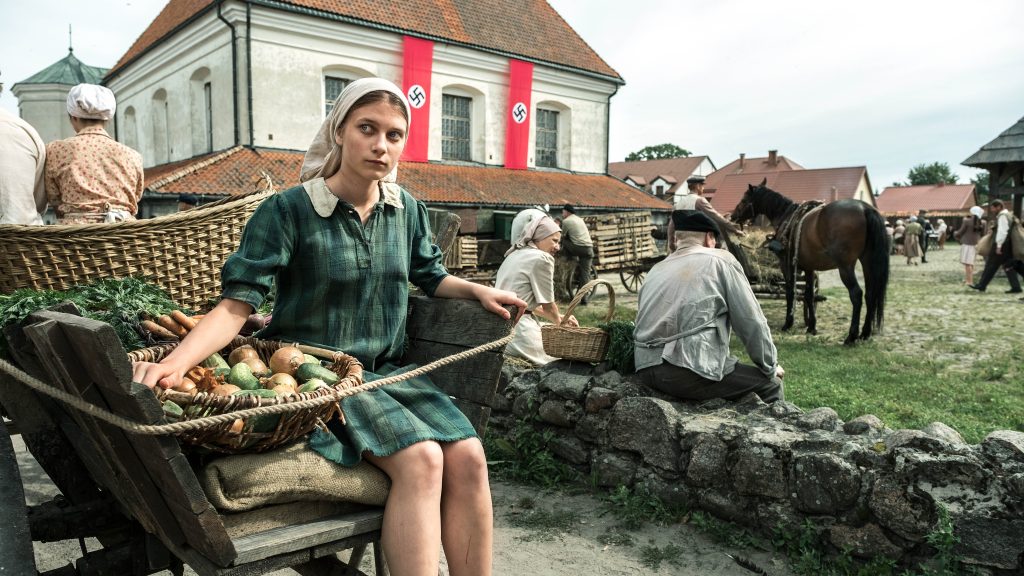
The pressure of all of the lies starts to weigh on Sara and as she visits the local priest during confession for the first time, she almost breaks down. She is able to compose herself, but she’s holding something back, and Father Oleksa knows it. She internalizes her pain, the way she knows how and we flashback to the night she said goodbye to her parents. We learn that Sara’s mother pulled her aside and gave her instructions to do whatever she must to survive: “It will be our revenge!”
Four months pass and the tension on the farm starts to ratchet up. Sara moves closer into Pavlo’s sights and his attempts at seduction become more frequent and more severe. He reveals to Sara that he was sleeping with the previous nanny, a fact that Nadia was aware of, but when Nadia questions Sara if Pavlo has “tried anything with her,” Sara covers for him and does not reveal the truth. While she’s aware of what her husband is capable of, it is as though Nadia purposefully places Sara in his line of fire at times; perhaps as a diversionary tactic to draw attention away from her own indiscretions. Regardless, Sara now finds herself dangerously implicated into her employers’ unstable relationship. She thinks desperately for a way out and asks Father Oleksa for his help one day during confession. She mentions joining the partisans as an alternative route for survival, but when the priest questions if she has the strength required to do so, Sara fires back defensively, “You don’t know what I’m capable of!” Her burst of emotion shows a crack in her veneer and after pressing further, Father Oleksa learns of Sara’s true identity.
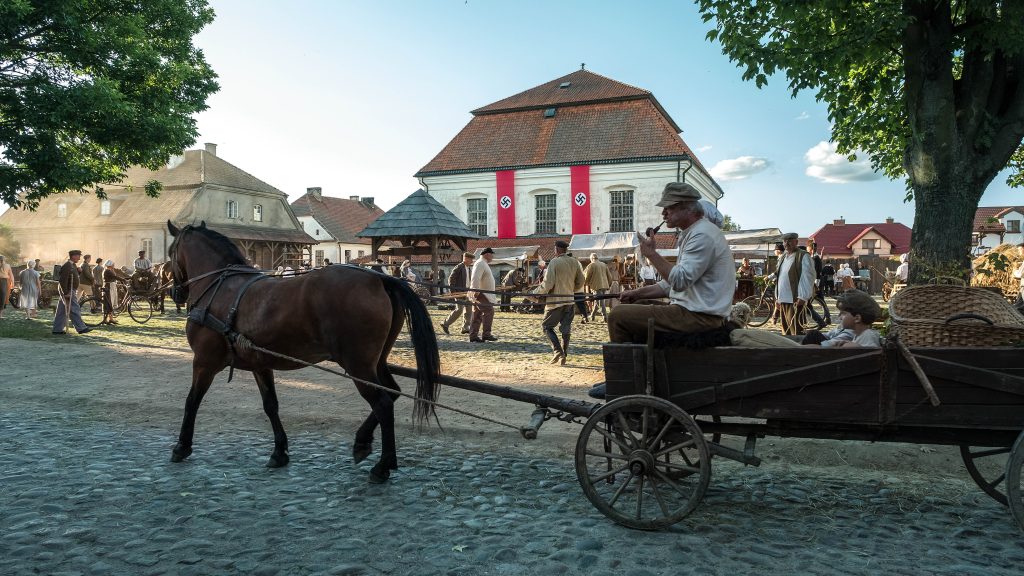
In the spring on 1943, Pavlo’s animals are requisitioned by the German Army, leaving him with only a single cow to plant his crops. After desperately working the cow to death, Pavlo is left with no other choice but to pull the plow himself. Yet he accomplishes the impossible and works tirelessly to finish sowing his fields with wheat. One night while working in the fields alone with Sara, Pavlo seizes the opportunity and rapes her. While more an act of seduction than violence, he puts her in a position she simply can’t risk saying no to, so Sara follows her mother’s instructions and does whatever she must in order to survive. As the film progresses further into 1943, the battle wages closer to the farm. After two German soldiers are killed in a nearby partisan raid, the Nazis round up all of the local townspeople to conduct a reprisal killing, as was customarily done to quell further resistance. Corralled into the town square with the rest of the villagers, Sara, Nadia, Pavlo and the boys, find themselves in a panicked mass of people awaiting random selection for the impending execution. While Sara and the family narrowly escape being grabbed, twenty other townsfolk are violently yanked from the hands of their loved ones and placed at the wall. One by one they are lined up, pleading, until the final selection, a young boy of only 10, is pulled out. Walking down the line reading last rights, Father Oleksa comes to the boy and replaces himself for his young parishioner. The priest bravely puts himself before the German assassination squad and stares into Sara’s eyes as he chants his last prayers in sacrifice. She watches as the only person she shared her secret with, goes to his grave with it.
It is now ten months later and by June of 1944 Sara has been living on the farm for almost two years. Her experiences have aged her and she is noticeably older, more of a woman. The end of the war is near and the German Army is retreating on both fronts. The Allies have already invaded Normandy and the Red Army is pushing closer and closer to the farm. Sara can taste liberation; she just needs to wait out the last few months without incident. One night, as a German squadron is passing the farm, it is attacked by Russian planes that unleash a fury of bombs upon the area. Sara and the family are forced to run for cover in the root cellar, where they make it just in time as the farm is riddled with explosions. The small space they are sheltering in, is crumbling around them and it looks as though it will soon be a grave for all of them. Certain that she is going to die, Sara recites the Shema aloud in Hebrew, the prayer that Jews say before they die to protect their soul. As the bombing crescendos around her, Sara reveals her true identity to Pavlo and Nadia for the first time.
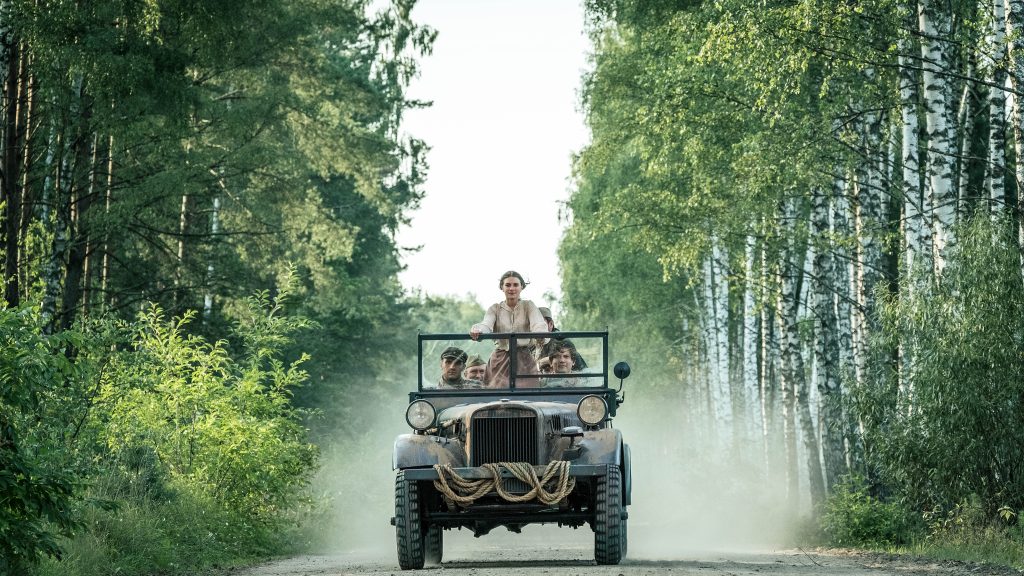
The next morning, Sara and the family emerge from the root cellar and take in the destruction. The battle has passed and while badly damaged, the house is still standing. Sara tells the family her real name and explains that she must go home to Korets to look for her brother. While they may have had their suspicions, Pavlo and Nadia are hit squarely in the face by Sara’s words. Neither of them can stand to look at her. She says her goodbyes to the boys and walks off in the direction she came from, two years ago.
Shortly after leaving the farm, Sara is passed by an army jeep full of Russian soldiers when she recognizes one of their faces. She starts chasing after the jeep, yelling for them to stop, but it’s to no avail, as the jeep pulls further and further away from a desperate Sara. She runs with all of her might to keep up and in one last gasp, shouts, “I’m a Jew!” The guy who is riding shotgun PULLS the stick shift out of gear and the jeep immediately STOPS. He turns around in Sara’s direction and reveals his face – it’s the Jewish partisan who almost killed Pavlo on the farm last winter. Sara lets out a sigh of relief and she walks towards the jeep. For the first time in two years, we see Sara’s real smile. As the jeep rides off with Sara on it, we learn the rest of Sara’s story through postscript:
Sara was liberated by the Russian Army who took her back to Korets, where she learned that her brother Moishe had been turned over to the Germans for 2 kilos of salt. She later married one of the town’s other few Jewish survivors and immigrated to the United States in 1949, where she carried on her family’s legacy, raising 3 sons and 4 grandchildren. Sara passed away in 2018 at the age of 88.
